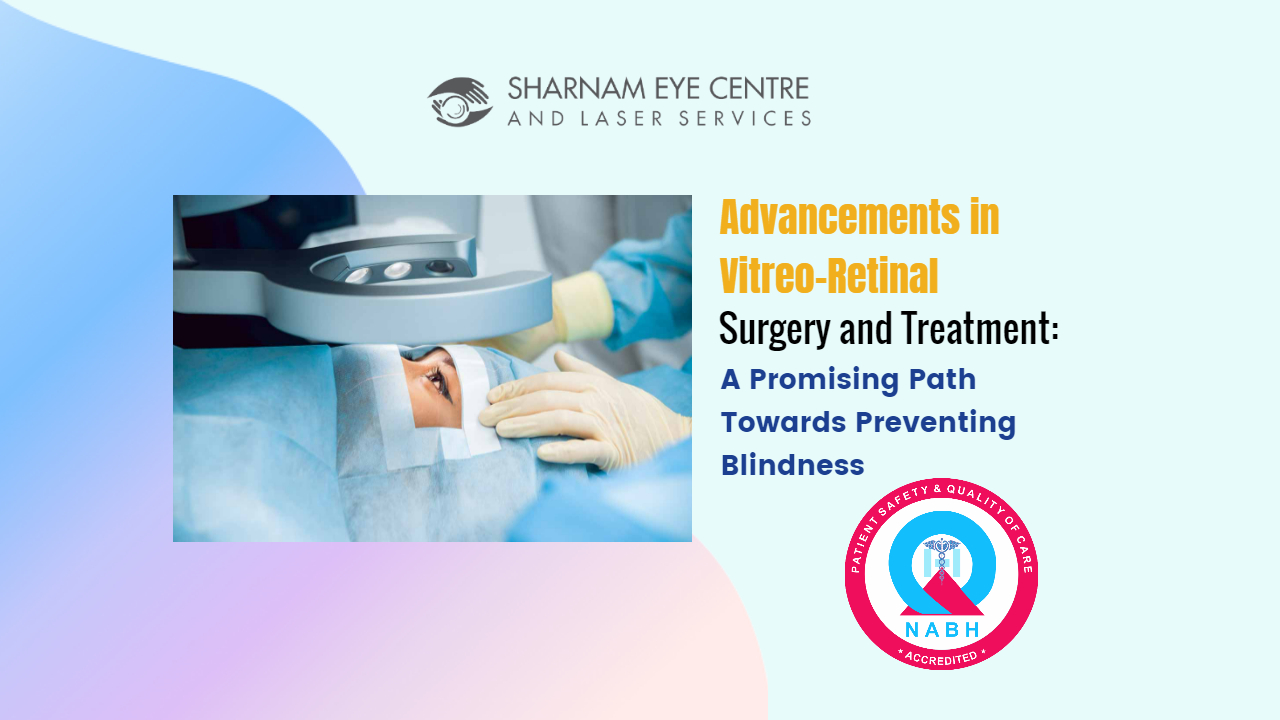Over the years, remarkable progress has been made in the field of vitreo-retinal surgery and treatment, offering renewed hope to patients suffering from various retinal disorders. Conditions such as diabetic retinopathy, macular degeneration, and retinal detachment, once considered grave threats to vision, can now be effectively managed and treated. While these advancements have significantly improved outcomes, there are still some areas where further development is needed. Nonetheless, the ongoing process of learning and innovation instils optimism that future breakthroughs will help prevent blindness caused by vitreo-retinal diseases.
Improved Treatment Modalities:
Vitreo-retinal surgery and treatment have witnessed transformative improvements, thanks to advancements in technology, surgical techniques, and pharmaceutical interventions. These breakthroughs have revolutionized patient care, enabling earlier detection, accurate diagnosis, and targeted treatments. With the advent of minimally invasive procedures, such as vitrectomy, retinal lasers, and intravitreal injections, patients now experience shorter recovery times, reduced complications, and improved visual outcomes.
Diabetic Retinopathy: A Paradigm Shift in Management:
Diabetic retinopathy, a leading cause of blindness worldwide, has seen substantial progress in both prevention and treatment strategies. Early detection through regular eye screenings and timely intervention have been key in combating this condition. Innovative therapies, including anti-VEGF injections and steroid implants, have proven successful in halting disease progression and preserving visual function. Moreover, the integration of artificial intelligence and machine learning algorithms in retinal imaging has enhanced diagnostic accuracy, allowing for more precise and personalized treatments.
Macular Degeneration: Unleashing the Potential of Anti-VEGF Therapy:
Age-related macular degeneration (AMD) has long been a challenge in ophthalmology. However, the advent of anti-vascular endothelial growth factor (anti-VEGF) therapy has been a game-changer. These drugs effectively inhibit abnormal blood vessel growth, reduce macular edema, and stabilize or improve vision in many patients. Furthermore, ongoing research is focused on developing sustained-release drug delivery systems and gene therapies to provide longer-lasting and more targeted treatments for AMD.
Retinal Detachment: Surgical Innovations and Rehabilitation:
Retinal detachment, a sight-threatening condition, has greatly benefited from surgical advancements. Modern vitrectomy techniques, the use of intraocular gas or silicone oil, and advances in retinal imaging have enhanced surgical success rates and visual recovery. Post-operative rehabilitation, including visual aids, low-vision devices, and counselling, plays a crucial role in helping patients regain functional vision and adapt to any residual visual impairments.
Remaining Challenges and Future Prospects:
Despite the tremendous progress achieved, some challenges and limitations persist. Issues such as access to care, high treatment costs, and limited resources in certain regions pose barriers to optimal management of vitreo-retinal diseases. Furthermore, long-term outcomes of some treatments require further investigation to ensure their sustained effectiveness and safety.
The process of learning and development in the field of vitreo-retinal surgery and treatment continues unabated. Ongoing research focuses on improving current therapies, developing novel treatment modalities, and unravelling the molecular mechanisms underlying retinal diseases. Collaborations between researchers, clinicians, and industry stakeholders are critical for advancing knowledge, promoting innovation, and overcoming existing limitations.
Conclusion:
The advancements in vitreo-retinal surgery and treatment have transformed the lives of countless individuals affected by diabetic retinopathy, macular degeneration, retinal detachment, and other retinal disorders. While there are still challenges to address, the relentless pursuit of knowledge and innovation instils hope that blindness due to vitreo-retinal diseases will be prevented in the future. By harnessing emerging technologies, promoting accessibility to care.
Disclaimer: This content is for informational purposes only and should not replace professional medical advice, diagnosis, or treatment.



